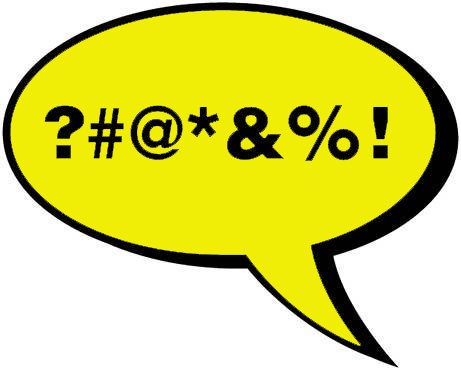BY GWEN LISTER – Insult. How freely it is exchanged on social media, with no thought or consequence about the feelings of others. It is also disturbing that attempts to point out the dangers of destructive and discriminatory language online are often met with derision and personal attacks.
Worse still, the use of slurs by those who should be role models to the youth risks pushing our democracy in a downward direction, with the potential even of unleashing violent consequences.
Political insult in post-independence Namibia reached unprecedented heights when the late Hidipo Hamutenya left Swapo to form his own political party in 2007. This gave rise to what became characterised as the ‘cockroach’ era, when he and others were demonised with derogatory labels such as ‘enemy’ and ‘Satan’. What bordered on hate speech was hurled at those who dared to take issue with the ruling party.
Again, during the Swapo congress of November 2017 when two distinct groups emerged, the Harambee camp supporting now president Hage Geingob, and Team Swapo, who put their weight behind Jerry Ekandjo for the Swapo presidency, verbal abuse, slander and tribal slurs became the order of the day. Both sides accused the other, and free and fair campaigning in democratic contest became the victim in the process.
Things calmed down later, but the damage had been done, and set in motion a negative trend which would increasingly find voice, not only in the public sphere, but continue to simmer on social media platforms and WhatsApp groups until today.
This week, I took issue with the leader of the Affirmative Repositioning (AR), Job Amupanda, an outspoken opponent (like myself) of untrammelled Chinese expansionism in Namibia, who on Twitter referred to the said nationality as ‘Ching-Chongs’.
I responded by pointing out one could “be critical about others without using insults like ‘Ching-Chong’, the ‘k’ word and even ‘boer’,” adding that “we really have to elevate our discussions, or drive social media further into the cesspit”.
Amupanda in turn replied to justify his use of the word on grounds of his activism, and further responses to my tweet by his adherents were swift, immediate and even vicious in the defence of the particular ethnic slur, and attacking me from a dizzying height for daring to put the ‘k’ and ‘boer’ words in the same sentence. To those who genuinely wanted to know why such words were insults, I tried to respond with explanations.
Political scientist Henning Melber also waded in, and later posted a quote from Chinua Achebe, which addressed the issue at its heart: “We cannot trample upon the humanity of others without devaluing our own”, and added the Igbo proverb that “he who will hold another down in the mud must stay in the mud to keep him down”.
The intent behind my tweet was not to quantify insult (because who can measure the hurt which results from such verbal abuses?), or to give more weight to one than the other, but simply to say that free speech and democracy are not well-served by resorting to personalised invective.
It was also a (futile) attempt on my part to point out that Amupanda, who I otherwise appreciate for the mostly good causes he espouses, will denigrate the integrity of his own campaigns and lose support over precisely his tendency to lash out at critics with an ‘anything goes’ approach.
While his supporters sprang to his defence by vilifying me and everything I’ve ever done, I am nevertheless encouraged by the fact that there were numbers of young Namibians who clearly respect the rights of others, and who realise that debate and discussion are not served by descending to the lowest common denominator.
Overall though, unfortunately, bullies tend to silence such voices online, making them afraid to speak out in defence of what they know to be right and good, because of the humiliation they’ll have to endure as a result.
The exchange on Twitter left me with a sour taste, and a concern that the democracy and rights-based culture we fought for will not be respected and/or protected by such youth, if one day they in turn ascend to the corridors of power. Words matter.
We must continue to ensure that vigorous and outspoken debate and critique continue, and that media and citizen voices are supported in holding power to account. But there is no need to descend to levels of a free-for-all which will only sow further divisions and hatred.
(Good) activism, defined as vigorous campaigning to bring about social or political change, should not be about insult. I am encouraged by a statement AR put out this week, declaring 2019 the year of the activist, and promising to build in the youth “content and character”, and I am hoping Amupanda will familiarise them with the need to instil a human rights-based approach in the language of activism.
He will rally more people to his cause that way, and transformation of society will happen quicker as a result.
* Follow me on Twitter: @GwenLister1

